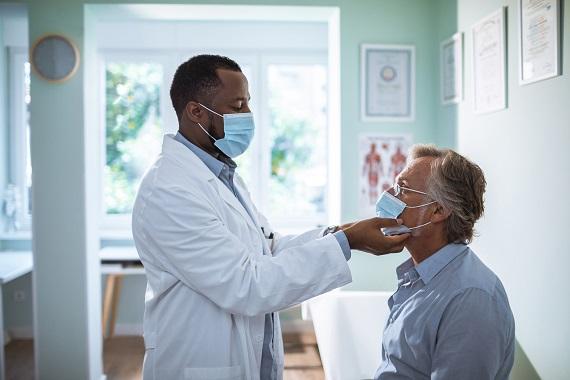-
Fil d’actualités
- EXPLORER
-
Pages
-
Groupes
-
Evènements
-
Blogs
Primary Care Physicians: Your First Line of Defense for Long-Term Health

In today’s fast-paced healthcare landscape, primary care physicians (PCPs) play an increasingly vital role in keeping individuals and families healthy. Often the first point of contact for patients, PCPs provide comprehensive, continuous, and personalized care that supports wellness, detects illness early, and manages chronic conditions effectively.
What Is a Primary Care Physician?
A primary care physician is a medical doctor trained to prevent, diagnose, and treat a wide variety of conditions across all age groups. PCPs are generalists who provide front-line medical services, often coordinating with specialists when necessary.
They are trained in areas such as:
- Internal medicine (for adults)
- Family medicine (for all ages)
- Pediatrics (for children)
- Geriatrics (for older adults)
Your PCP becomes familiar with your health history, lifestyle, and preferences—offering a level of personalized care that no walk-in clinic or emergency department can provide.
Why Primary Care Physicians Matter
Many health issues begin with subtle symptoms or risk factors that, when caught early, can be effectively treated or even prevented. This is where primary care physicians make a critical impact.
1. Preventive Care and Screenings
One of the most important functions of a PCP is to provide preventive care. This includes:
- Annual physical exams
- Vaccinations
- Blood pressure and cholesterol checks
- Cancer screenings (e.g., colonoscopies, mammograms, pap smears)
- Diabetes and thyroid screenings
By routinely monitoring these health markers, your PCP helps catch issues early—before they become serious.
2. Managing Chronic Conditions
Chronic diseases like diabetes, hypertension, asthma, and heart disease require long-term care and management. A PCP helps create a personalized treatment plan, monitors your progress, and adjusts medications or therapies as needed. Their continuity of care results in better outcomes and lower healthcare costs.
3. Coordinating Specialist Care
If you need to see a specialist, your PCP acts as a guide—referring you to the right expert and coordinating care between providers. This ensures you get the appropriate tests and treatments without duplication or delays.
4. Mental Health Support
Primary care physicians are also trained to identify and manage common mental health conditions, such as anxiety and depression. They may offer counseling, prescribe medications, or refer you to a mental health professional when necessary.
Benefits of Having a Primary Care Physician
Establishing care with a PCP offers several long-term benefits:
- Continuity of Care
Over time, your doctor gets to know your health history and lifestyle, which allows for better medical decision-making. They can spot patterns and subtle changes that may indicate an emerging issue.
- Lower Healthcare Costs
Preventive care and early intervention help avoid expensive emergency visits and hospitalizations. Studies have shown that people with a regular PCP have lower overall healthcare costs.
- Stronger Doctor-Patient Relationship
Trust and communication are essential in healthcare. When you see the same doctor regularly, you build a relationship that encourages honesty and collaboration—key to better outcomes.
- Holistic, Whole-Person Care
PCPs consider your physical, emotional, and social well-being, offering care that goes beyond symptoms. They understand how your family history, work stress, and daily habits impact your health.
How to Choose the Right Primary Care Physician
Finding the right PCP is a personal decision. Here are a few tips to guide your search:
1. Check Credentials and Specialties
Make sure the doctor is board-certified in internal medicine, family medicine, or another primary care specialty.
2. Consider Communication Style
You want a physician who listens, respects your concerns, and explains things clearly.
3. Location and Accessibility
Choose a provider who is conveniently located and whose office hours fit your schedule.
4. Insurance Coverage
Confirm that the doctor accepts your health insurance to avoid unexpected costs.
5. Online Reviews and Referrals
Ask friends or family for recommendations and check online ratings for feedback on bedside manner, wait times, and office staff.
When Should You See a Primary Care Physician?
You don’t need to be sick to see your PCP. You should see them at least once a year for a wellness check. Here are some other common reasons to schedule an appointment:
- Persistent fatigue, pain, or digestive issues
- Changes in mood or sleep
- Skin problems, infections, or allergies
- Medication management
- New or unexplained symptoms
If it’s been more than a year since your last visit, consider booking an appointment now—it could be the best decision you make for your health this year.
Final Thoughts
Your primary care physician is more than just a doctor; they’re your advocate, educator, and partner in health. They help you stay on track with preventive care, manage ongoing conditions, and provide the support you need during illness or injury.
- Art
- Causes
- Crafts
- Dance
- Drinks
- Film
- Fitness
- Food
- Jeux
- Gardening
- Health
- Domicile
- Literature
- Music
- Networking
- Autre
- Party
- Religion
- Shopping
- Sports
- Theater
- Wellness


